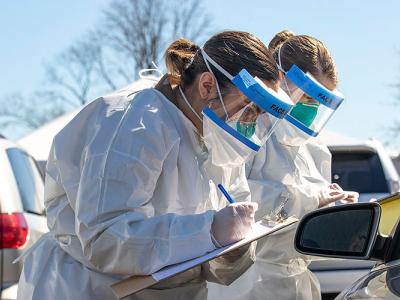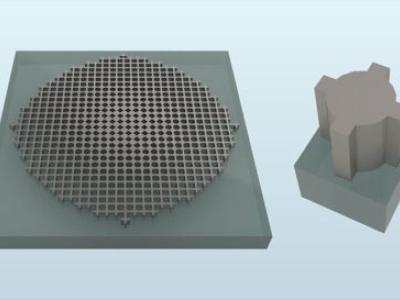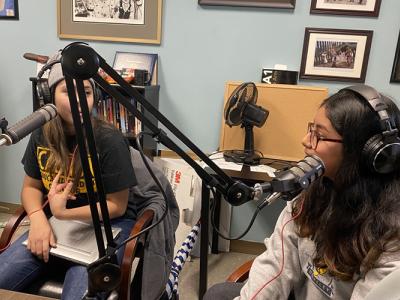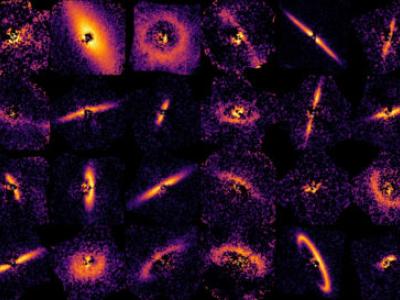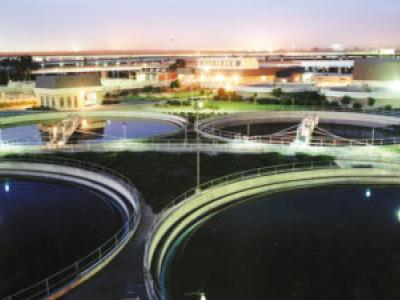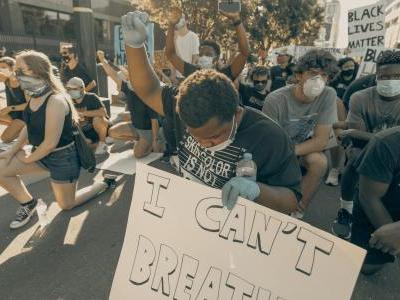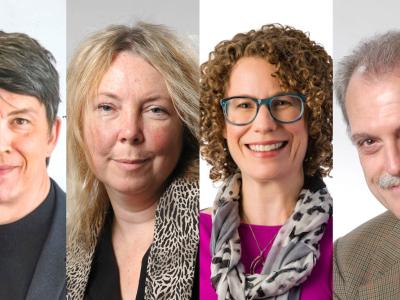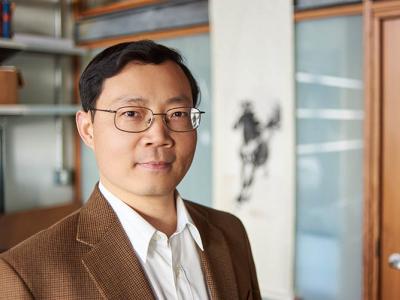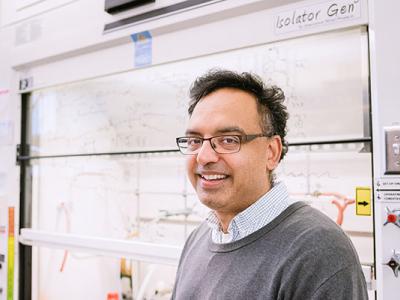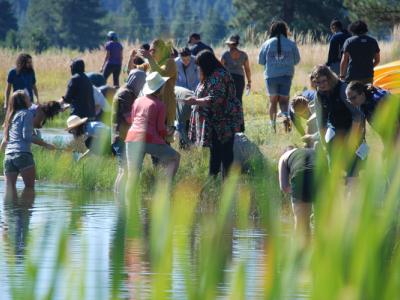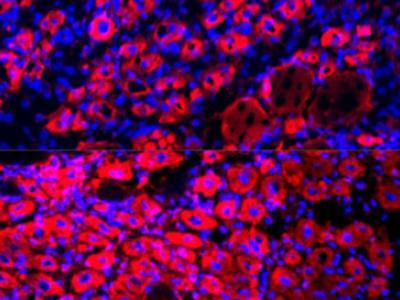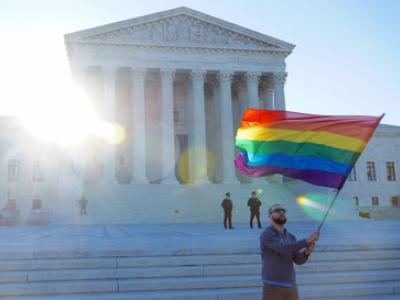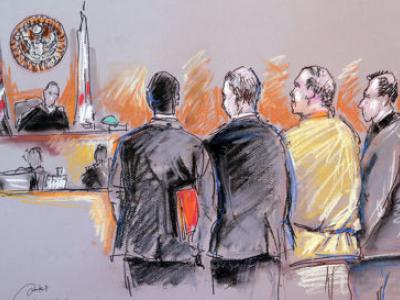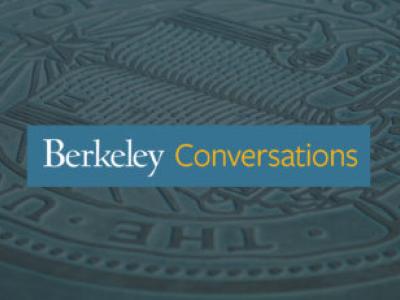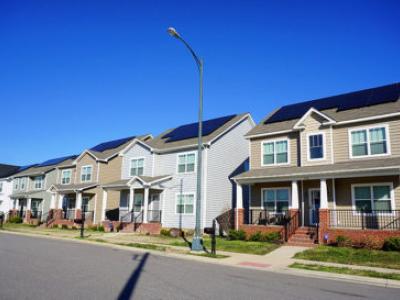The COVID-19 pandemic has cost California’s public and private insurers an estimated $2.4 billion dollars in testing and treatment — about six times the annual cost to treat seasonal influenza in the state, according to a new study by researchers at the Nicholas C. Petris Center at the University of California, Berkeley, School of Public Health.
Research News
Learn more about UC Berkeley's researchers and innovators.
Showing 1313 - 1328 of 3512 Results
Traditional lenses — like the ones found in eyeglasses — are bulky, heavy and only focus light across a limited number of wavelengths. A new, ultrathin metalens developed by researchers at the University of California, Berkeley, uses an array of tiny, connected waveguides that resembles a fishnet to focus light at wavelengths spanning from the visible to the infrared with record-breaking efficiencies.
If necessity is the mother of invention, more than a few winners of the campus’s first-ever Berkeley Changemaker Technology Innovation Grants found inspiration in the teaching and learning challenges posed by the COVID-19 pandemic. Other initiatives address the timely topics of racial justice and equality.
Astronomers this month released the largest collection of sharp, detailed images of debris disks around young stars, showcasing the great variety of shapes and sizes of stellar systems during their prime planet-forming years. Surprisingly, nearly all showed evidence of planets.
Current efforts to track the spread of COVID-19 have largely relied on individual testing and hospital admission numbers. However, these data do not detect trends in the virus’s spread in the greater population, including those who are asymptomatic.
Race- and ethnicity-based inequities in health outcomes for Americans are not news to public health specialists. Here at the UC Berkeley School of Public Health, our faculty, researchers, and students have been working to illuminate the many ways in which racism affects who gets healthcare, how that healthcare is delivered, and possible solutions to entrenched problems like police brutality.
The newly formed research consortium C3.ai Digital Transformation Institute has made awards to 26 research projects led by top scientists and engineers to mitigate the COVID-19 pandemic. Four of the recipients have faculty appointments at UC Berkeley’s College of Engineering.
Campus research buildings, shuttered due to the coronavirus pandemic, are slowly, safely reopening, and officials expect to welcome back researchers to more than two dozen buildings by the end of June.
A few years ago, Junqiao Wu, a UC Berkeley professor of material science and engineering, figured out how he could use thermal power to transform materials: roofs that adapt to temperatures and save energy, new types of sunglasses and even tools that could screen for cancer or monitor hidden defects in buildings.
Up to 20 percent of UTIs are caused by a particularly resistant microbe known as ESBL-producing bacteria. These infections do not respond to the standard antibiotic treatment. With support as a 2019-2020 Bakar Fellow Niren Murthy, professor of bioengineering, and colleagues have developed a 30-minute, low-tech test, called DETECT, to identify ESBL-producing bacteria on a patient’s first visit to the doctor.
The COVID-19 pandemic threatens the survival of organizations nationwide that provide critical outdoor environmental and science education to K-12 students, with an alarming 63% of such groups uncertain about their ability to ever reopen their doors, according to a study released this week by the Lawrence Hall of Science at the University of California, Berkeley.
In 2005, University of California, Berkeley, researchers made the surprising discovery that making conjoined twins out of young and old mice — such that they share blood and organs — can rejuvenate tissues and reverse the signs of aging in the old mice. The finding sparked a flurry of research into whether a youngster’s blood might contain special proteins or molecules that could serve as a “fountain of youth” for mice and humans alike.
The U.S. Supreme Court on Monday ruled that federal anti-discrimination law protects gay, lesbian and transgender people from job and employment discrimination, for the first time extending protections to LGBTQ people in every state.
An eye-opening report from Berkeley Law’s Death Penalty Clinic finds that racial discrimination is a consistent aspect of jury selection in California. The exhaustive studyinvestigates the history, legacy, and ongoing practice of excluding people of color—especially African Americans—from state juries through prosecutors’ peremptory challenges.
As the public health community races to contain the current global pandemic, researchers are working diligently to understand the novel coronavirus. Such efforts cross many facets of scientific research — from virology to wildlife ecology to medicine — with the ultimate hope of containing the virus and developing a vaccine.
In adopting a different diet or driving less, a person has an effect on the planet, says Robert Frank, an economics professor at Cornell University. But not for the reason they might think.

